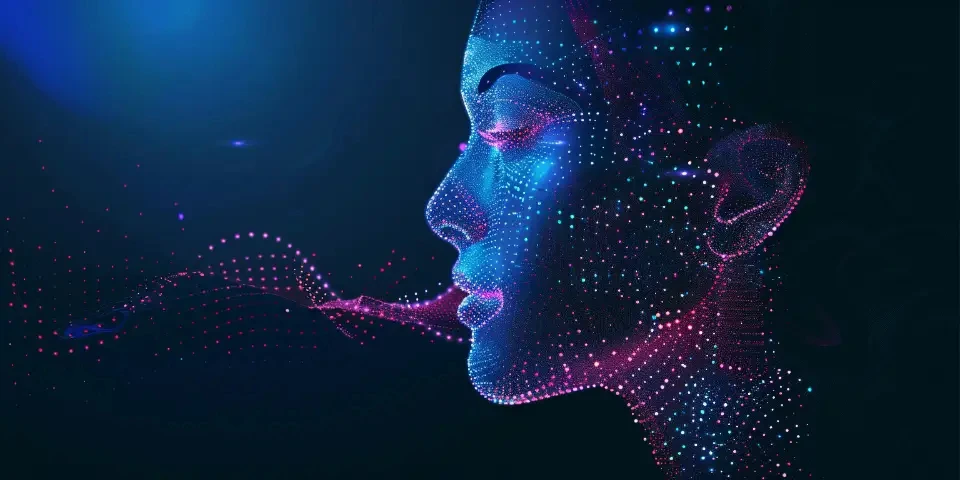AI for Social Good 10 Inspirational GIFs Showcasing AI's Positive Impact on Society
Artificial Intelligence (AI) is revolutionizing various aspects of our lives and has a tremendous potential to bring about positive change in society. From healthcare to education, AI is making a significant impact. In this article, we present 10 inspirational GIFs showcasing how AI is contributing to social good and transforming the world we live in.
1. AI in Healthcare
AI-powered diagnostic systems are capable of analyzing medical images with incredible accuracy, aiding in the early detection of diseases like cancer. These systems can save lives by detecting abnormalities that might be missed by human doctors.

Additionally, AI-enabled chatbots and virtual nurses can provide personalized healthcare advice and support, improving access to medical information for people in remote areas or those who lack resources.
2. AI in Education
Intelligent tutoring systems using AI algorithms can provide personalized learning experiences to students. By analyzing individual strengths and weaknesses, these systems adapt the curriculum to meet specific needs, ensuring effective and efficient learning.
AIs can also assist in grading assignments and providing feedback, relieving teachers of some administrative tasks and allowing them to focus more on teaching and mentoring students.
3. AI in Disaster Management
In disaster-prone areas, AI-powered early warning systems can analyze various data sources to predict and alert authorities about potential disasters like earthquakes, floods, or hurricanes. Timely warnings can save countless lives and help in better preparedness.
AI algorithms can also aid in post-disaster recovery efforts by analyzing satellite images to identify areas for prioritized relief operations.
4. AI in Environmental Conservation
AI enables real-time monitoring and analysis of environmental data, helping us understand the impact of human activities on our planet. Machine learning algorithms can identify patterns in data, guiding conservation efforts and supporting the development of sustainable practices.
By analyzing wildlife patterns and behavior, AI technology can aid in the protection and preservation of endangered species.
5. AI in Transportation
Self-driving cars, empowered by AI, are poised to revolutionize transportation by reducing accidents and traffic congestion. AI algorithms can make split-second decisions based on real-time data, optimizing traffic flow and improving overall safety.
Ridesharing platforms also benefit from AI algorithms, matching drivers with passengers efficiently and reducing carbon emissions by promoting carpooling.
6. AI in Agriculture
AI and machine learning algorithms can help farmers optimize crop yields by analyzing various factors such as soil composition, weather patterns, and plant health. This information assists farmers in making data-driven decisions about crop rotation, irrigation, and pest control.
Moreover, AI-powered drones equipped with advanced imaging systems can monitor vast agricultural lands efficiently, detecting diseases and water stress in crops.
7. AI in Accessibility
AI technology has the potential to break down barriers and make the world more accessible for individuals with disabilities. Speech recognition and natural language processing algorithms enable hands-free interactions, empowering people with mobility impairments.
Machine learning algorithms can also assist visually impaired individuals by providing audio descriptions of their surroundings or translating text into Braille.
8. AI in Poverty Alleviation
AI algorithms can analyze poverty-related data to identify patterns and suggest effective strategies for poverty reduction. This information can help governments and organizations better allocate resources and tailor interventions to specific regions or populations.
With AI-powered micro-lending platforms, individuals in low-income communities can access financial services that were previously out of reach, promoting economic empowerment and entrepreneurship.
9. AI in Mental Health
Chatbots and virtual assistants powered by AI algorithms can provide 24/7 mental health support. Individuals can confidentially express their feelings, receive advice, and access helpful resources at any time, eliminating barriers such as cost or stigma associated with seeking help.
Machine learning algorithms can also identify early signs of mental health issues by analyzing social media posts, helping professionals intervene proactively.
10. AI in Social Services
AI algorithms can assist social service organizations in identifying individuals and communities that require support the most. By analyzing a wide range of data, such as social media activity, demographics, and economic indicators, AI can help direct resources and interventions where they are most needed.
Virtual assistants and chatbots can also provide information and guidance on social services, simplifying processes and reaching individuals in need efficiently.
Frequently Asked Questions
1. Is AI replacing human jobs?
No, AI is not replacing human jobs entirely. Instead, it is augmenting human capabilities and transforming the nature of work. While some tasks may be automated, AI also creates new job opportunities and allows humans to focus on higher-value activities.
2. Is AI biased?
AI algorithms can be biased if they are trained on biased or incomplete data. Bias in AI can result in unfair outcomes. To mitigate this, it is essential to ensure diverse and representative training data and implement fairness practices when developing AI systems.
3. Is AI ethical?
AI ethics is a critical concern in the development and deployment of AI systems. It is crucial to consider the potential impact of AI on individuals and society as a whole. Ethical guidelines and regulations are being developed to ensure AI is used responsibly and for the benefit of all.
References
1. World Economic Forum - "Artificial Intelligence for Good: Top 10 Projects">
2. UNICEF Innovation - "AI for Social Good: Projects that Make a Difference"
3. Forbes - "How AI Is Transforming Healthcare: 5 Examples That Show the Latest Advances"
Explore your companion in WeMate